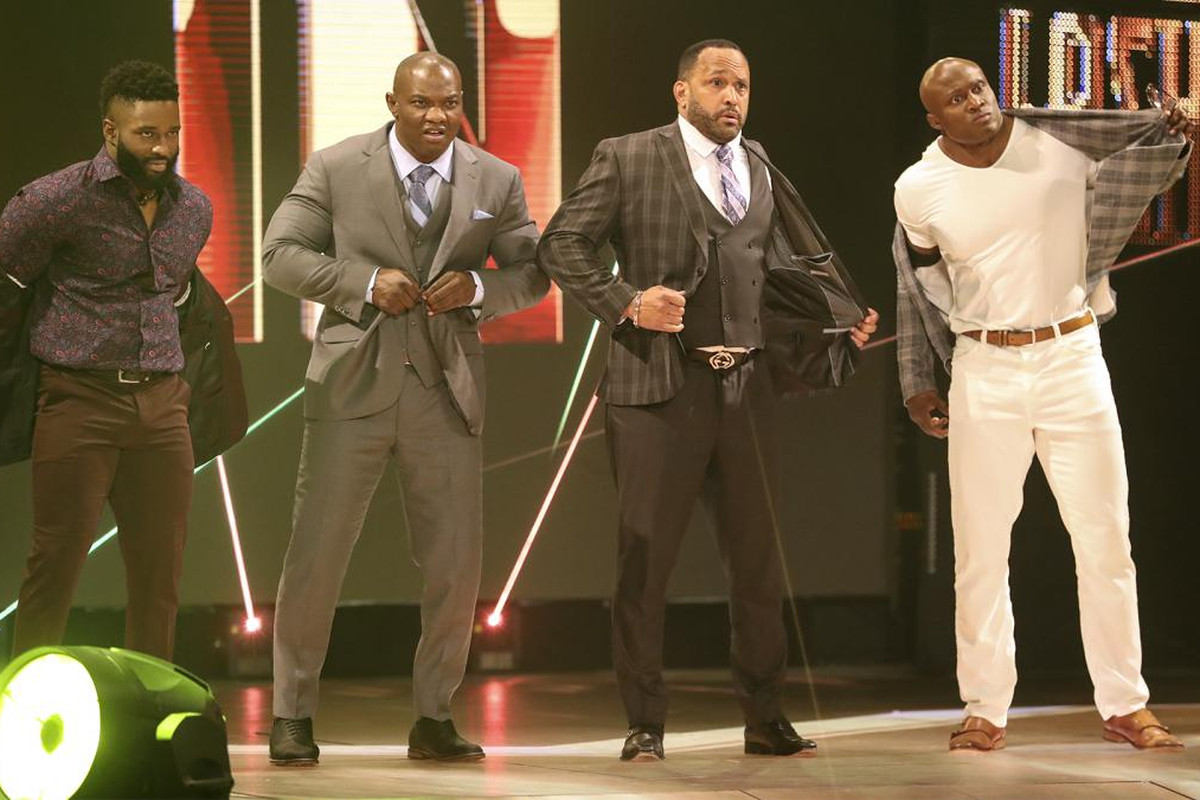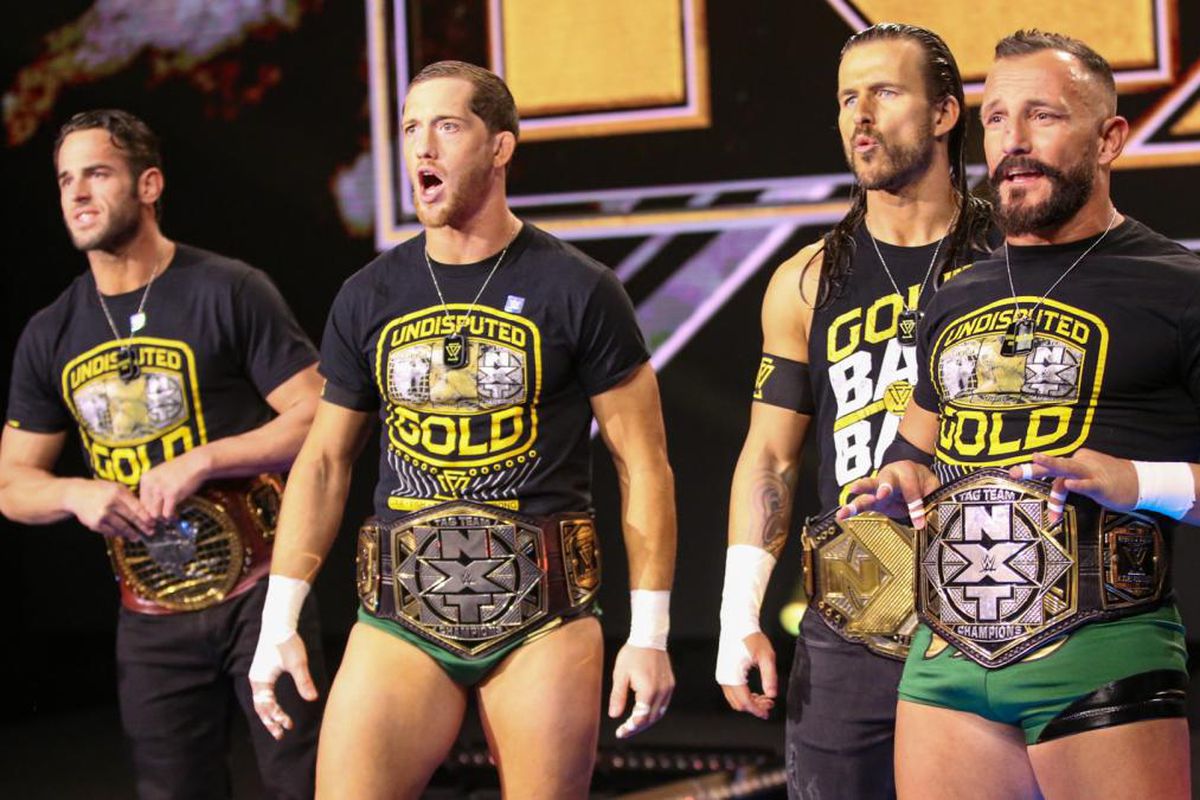With AEW debuting its newest stable (QT Marshall’s ‘The Factory’) very recently, a renewed focus has been placed on the importance and place of factions in pro wrestling. It has led some to claim having a plethora of factions on your books is a negative, while others have staunchly argued that it’s solely a positive.
Of course not only AEW utilise factions, as the vast majority of Japanese promotions use a faction system to great effect as well. In the past, more than the present, WWE have also relied noticeably on stables, so it’s well founded that they can be a positive influence. However, they aren’t always a positive commodity – so are factions really a blessing, or are they in fact a curse?
Wrestling Factions As A Blessing

So, what can wrestling factions bring to a promotion?
They offer a structure to the product that is unmatched by companies lacking factions, as it offers a way of keeping things fresh while still featuring the same top talent in visible roles. Recycling wrestlers out of their high level programme and putting them in a role within their respective factions, they’re still visible without burning through their time at the top.
You can see this in action most predominantly in New Japan Pro Wrestling, where, for example, Tetsuya Naito had his time at the top of the card and is now taking a backseat for the moment (being placed in his faction’s multi-man tags, instead of challenging for singles titles additionally).
Importantly, and most simply, factions just make sense. In life we associate ourselves with other people, so it only makes sense that in the “kayfabe” world, wrestlers would associate themselves with other wrestlers too. It’s unrealistic to have all wrestlers stand alone, but one of the many positives of a faction system is that the ones that do are accentuated as a result.
Take Jon Moxley, for example. In AEW, he stands out evermore for being unaligned when most around him are tied to a certain faction or group on the roster. Lots of factions help to sculpt a ‘lone wolf’ type persona, which in turn allows the given wrestler to stand out as unique, interesting and important.
Wrestling Factions As A Curse

However, there are some arguments about factions seemingly being a negative – a curse for wrestling promotions to avoid – but these have counter arguments too.
Some would argue that factions make it difficult for new fans to get invested in the promotion, as it could seem overwhelming to a fresh eyed viewer. I can see where this argument is coming from, as when I was first getting into Puroresu it wasn’t easy to understand all the various factions on my screen. Although, this is only a minor hurdle, as after a little while fans grow accustomed to the roster, much like they do in a promotion without stables, all the same.
Heavy reliance on factions can force wrestlers to be pigeonholed into groups that they don’t really suit. This is a very damaging side effect of a strong faction system, as it weakens the characters of some wrestlers because they are being forcefully morphed into a group they don’t naturally fit alongside.
This is a strong argument against lots of factions, as a collective identity is lost when wrestlers who don’t necessarily fit join a group’s ranks. I would argue that nowhere clearer is this than in NJPW’s Bullet Club, as in recent years the stable has lost its meaning with the addition of wrestlers (I’m looking at you, EVIL) who don’t fit the group.
When everyone (or at least almost everyone) is assigned to a faction or group, there’s a tendency to find a place where a wrestler would fit “well enough”, rather than who would suit a given faction best. This is an issue, as factions should lift up everyone inside them, but if the wrestlers are pigeonholed into a given group, it can have the adverse effect.
So, Which One Is It?

Many binary questions have a “somewhere in the middle” answer, but I think this question has a definite answer. Factions are a blessing to pro wrestling. They allow wrestlers to find their own voice, while functioning in a group with well fitted allies, that facilitates a constant freshening of the roster and overall product.
All the arguments opposed to factions have, in my view, more persuasive counters, so when done well they don’t have a problematic downside.
While providing crucial structure to the roster, stables can also elevate all involved, and even those outside (as the ‘lone wolf’ argument indicates). This serves the primary purpose which proves factions are in fact a blessing to pro wrestling, as they’re a reliable way of lifting an entire roster – taking the promotion to higher levels.
Factions are a blessing, an overwhelming positive and a valuable asset to all wrestling companies. AEW are proving this, as they continue to envelop more of its roster into intriguing and well-informed stables, so the sky really is the limit for how special wrestling factions can be.
READ NEXT: Have WWE Failed With Matt Riddle?
Some of the coverage you find on Cultured Vultures contains affiliate links, which provide us with small commissions based on purchases made from visiting our site.
